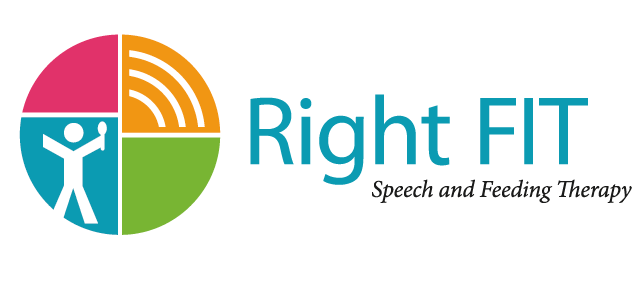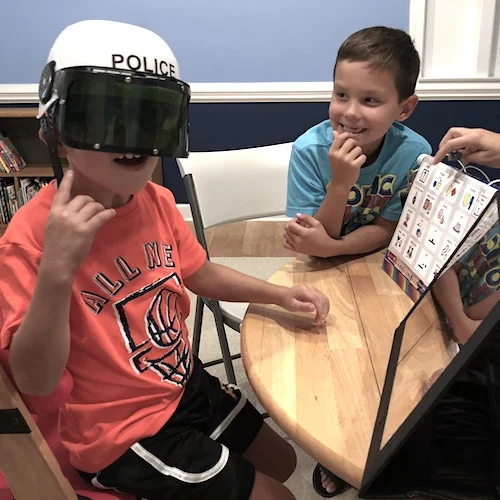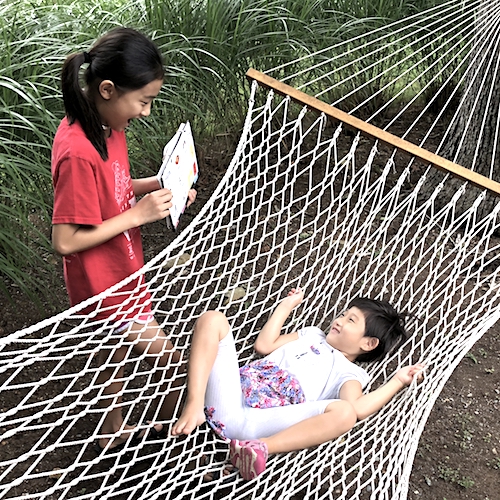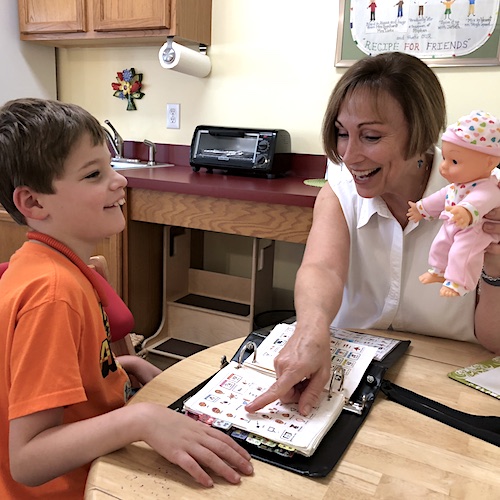Pragmatic Organization Dynamic Display (PODD)
I have been using PODD with children with complex communication needs since 2008.
In that time, I have seen PODD help children who were previously thought to be unable to communicate, say unexpected, funny, and profound things. This has been a great joy to parents and myself.
My Training
I attended the 3-Day Introductory PODD Training and Advanced 5-Day PODD Training with Gayle Porter (PODD originator) and Linda Burkhart.
Additionally, I completed an intensive, 40-hour Perkins-Roman CVI Range© course, to improve my ability to help children with cortical vision impairment use augmentative communication/PODD.
How I help families and professionals succeed with PODD
PODD services offered to parents and school personnel
Assistance in selection and printing of appropriate versions of PODD for individual children.
Training on how to use PODD correctly, including how to use alternative access methods, for children who cannot use to their hands to point (such as eye gaze or switches).
Coaching sessions for parents, to build skills and confidence.
Problem-solving ways to effectively incorporate use of PODD into a child's home and school environments.
Direct work with children to improve their communication using PODD.
Services can be tailored to meet specific needs including home and school visits.
Additional PODD services for Families
Teaching and training siblings, grandparents, caregivers, and anyone you would like, to use PODD with your child. I've even trained Ms. Wuf, the NC State University mascot!
Special programs for families, such as ‘Dads and Siblings’, which gives the opportunity for them to meet other dads/siblings of PODD users, and get extra training, while having fun together.
PODD in the Community
I run a PODD User Group, which meets 3-4 times per school year. Parents, grandparents, speech pathologists, teachers, teacher assistants, nurses, and occupational therapists are among those who attend. Attendees come from all surrounding counties, including Orange, Durham, Alamance, Wake, Chatham, and Person counties. We meet to connect, train, and support families and professionals of individuals who use PODD. We have a private Facebook group in which questions, resources, and successes can be shared (for privacy, this is invitation only, for PODD User Group members). Click here to be notified of the next PODD User Group meeting.
Upon request, training is provided to community groups of which our PODD Users are a part, such as the NC Therapeutic Riding Center (NCTRC), where instructors can use children’s PODD’s to communicate with them.
What is PODD?
Pragmatic・Organization・Dynamic Display
Pragmatic Organization Dynamic Display (PODD) is a means of selecting and organizing symbols so that people with complex communication needs and their communication partners can communicate more easily.
PODD stands for:
Pragmatic – the ways that we use language socially.
Organization – words and symbols arranged in a systematic way.
Dynamic Display – changing pages.
PODD is a way of organizing whole word and symbol vocabulary in a communication book or speech generating device to provide immersion and modelling for learning.
The aim of a PODD is to provide vocabulary:
for continuous communication all the time
for a range of messages
across a range of topics
in multiple environments
PODDs can have different formats, depending on the individual physical, sensory and communication needs of the person who will use it.
PODDs have been developed over the past 15 years by Gayle Porter, a speech pathologist with the Cerebral Palsy Education Centre (CPEC) in Victoria, Australia. Each PODD format has been shaped by the experiences of both children with complex communication needs (CCN), and their communication partners.
The above explanation of PODD was taken directly from a source recommended by Gayle Porter, the Novita Children's Center website. To read more about PODD click here.
Video Clips of Children Around the Globe Using PODD
Kind Words
“My son who has special needs and is non-verbal was introduced to the PODD in 2013. In the beginning, the PODD was intimidating for the adults. We continued to learn the process, because I knew Ayden had something to say, but no way to communicate it. I wasn’t sure if Ayden had the ability to comprehend the PODD when it was first introduced to him. Throughout this journey Lynn has provided encouragement, patience and training to Ayden and his team. She always keeps the expectations high for Ayden and I have watched him embrace the PODD. Now he is able to tell us what he wants, tell others about events that have happened and even shares his sense of humor. When you have a child with special needs who is non-verbal some people pre judge their ability, including teachers and therapists. When adults observe Ayden using his PODD to communicate they now expect more from him. This makes his mama’s heart very happy, because every person deserves an opportunity to communicate!”





